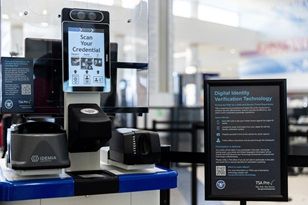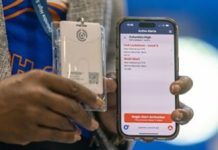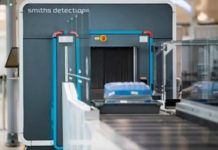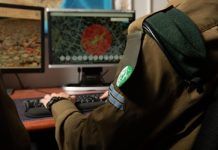The Transportation Security Administration (TSA) sparked privacy concerns after unveiling plans to roll out controversial facial recognition tech in over 400 US airports soon.
“TSA is in the early stages of deploying its facial recognition capability to airport security checkpoints,” a spokesperson told The Post regarding the ambitious program. They explained that the cutting-edge tech serves to both enhance and expedite the screening process for passengers.
Dubbed CAT-2 machines, these automated identification systems accomplish this by incorporating facial recognition tech to snap real-time pictures of travellers.
They then compare this biometric data against the flyer’s photo ID to verify that it’s the real person. Best of all, these CAT-scans enable “traveller use of mobile driver’s licences,” thereby improving the security experience, per the spokesperson. The TSA currently has 600 CAT-2 units deployed at about 50 airports nationwide and plans to expand them to 400 federalized airports in the future. However, it could be a while before this mass rollout comes to fruition.
“It may take until 2030 or 2040 that we are able to be fully operational with this technology,” said the spokesperson, who refused to name the specific airports for “security reasons.” This divisive program has perhaps unsurprisingly spawned a firestorm of criticism. Following the implementation of these synthetic security accelerators at US airports last winter, lawmakers expressed concerns that the machines present a major privacy issue.
“The TSA program is a precursor to a full-blown national surveillance state,” said Oregon Senator Jeff Merkley. “Nothing could be more damaging to our national values of privacy and freedom. No government should be trusted with this power.”
Merkley is part of a coalition of senators, which includes John Kennedy (R-LA), Edward J. Markey (D-MA), Roger Marshall (R-KS), Bernie Sanders (I-VT), and Elizabeth Warren (D-MA), who collaborated on the Traveler Privacy Protection Act.
“This new legislation would empower travellers in the United States with control over their privacy by banning the use of facial recognition technology and the collection of facial biometric data by the Transportation Security Administration (TSA) in U.S. airports,” the site reads. However, the TSA assures the public that automated ID checks aren’t mandatory, and that the data won’t be used for purposes other than screening passengers.
“The technology is completely voluntary,” the spokesperson told the Post. “Passengers may opt out without losing their place in line or any delay in getting through security screening.”
According to the TSA site, travellers who decide not to be scanned will undergo a manual ID check by the TSA agent at the podium.
As for the privacy violation implications, they declared that the tech is “solely used to automate the current manual ID checking process” and “will not be used for surveillance or any law enforcement purpose.”








